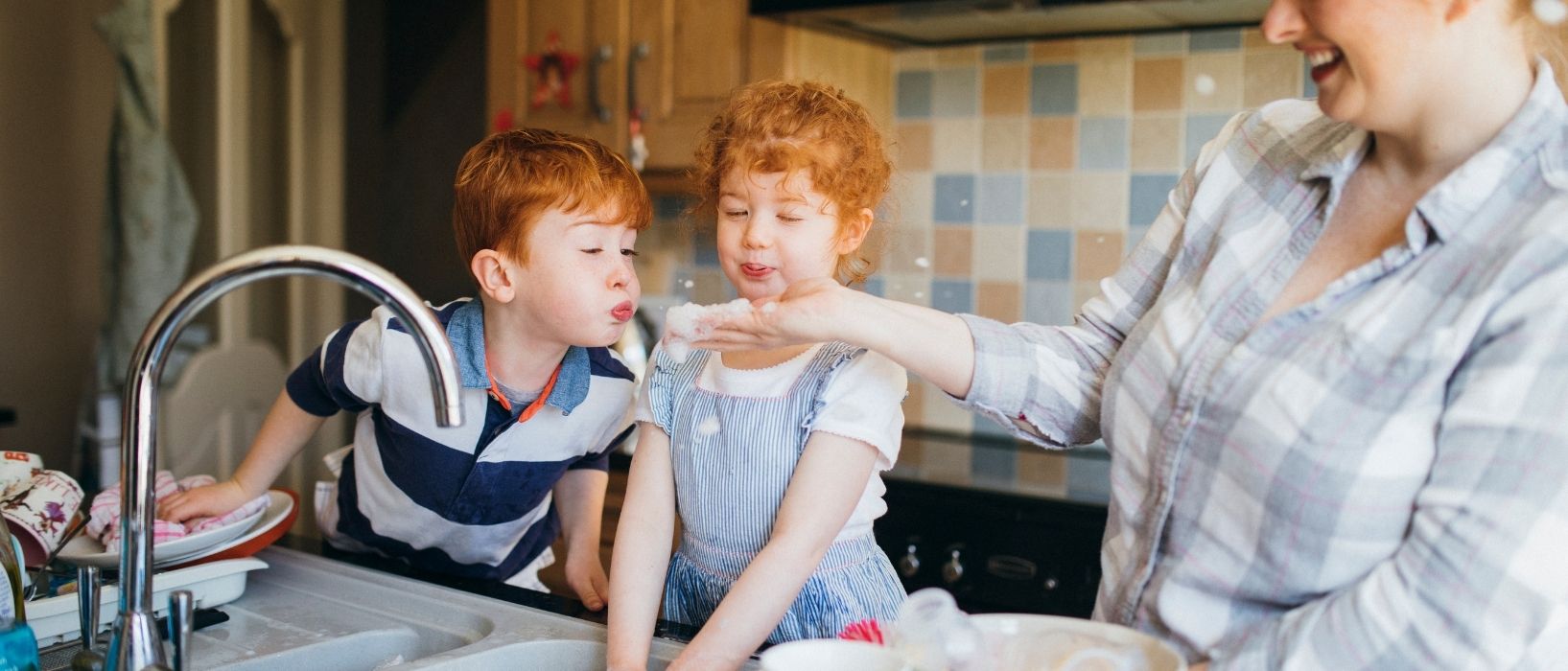Did you know that one of the most used products in everyone’s kitchen has a significant environmental impact?
The washing-up liquid that sits in its plastic bottle by your sink comes loaded with a whole host of impacts both on the environment and potentially your health.
Before the invention of washing liquid, dishes were washed with whatever soap was available and a lot of elbow grease.
The discovery that surfactants could be used in foaming and cleansing liquids, led to the development of dishwashing liquids.
The first examples were made in the 1940s, and the basic composition has remained relatively unchanged since then.
Water is the primary ingredient in washing up liquid, and detergents are the primary active ingredients.
Detergents, rather than soaps, are used because they do not react with minerals in the water to form soap scum.
Other thickening and stabilising agents are used and Surfactants, hydrotrope, salts, preservatives, fragrances, and dyes are examples of additional ingredients.
Not a lot of people know that when it comes to your washing up liquid being labelled as ‘eco-friendly’ is no guarantee that it is ‘eco-friendly’!
Whether they are labelled as ‘eco’ or not, all washing-up liquids sold in the UK must adhere to minimum ecological standards as standard.
However, to be considered biodegradable by the EU,’ a detergent must only degrade by 660 per cent within 28 days’.

During those 28 days, detergent and surfactant residues can accumulate and cause significant, long-term harm to humans, animals, and the environment.
It has been observed that releasing the phosphates from our washing up liquid into water bodies through our drainage system causes algae formation that adversely affects the ecosystem and kills plant and animal life.
According to Greenpeace, washing up liquid may also contain hormone-disrupting artificial musks, which are potential carcinogens and reproductive toxins in both humans and wildlife.
The NHS also lists washing up liquid as one of the main causes of Eczema in the UK.
With water being the primary ingredient, we are left with a much larger footprint and drained resources for our washing up product.
Larger packaging, delivery weight and of course water use (in a world where clean water is becoming scarcer) all increase the impact of our soapy sudmaker.
There is also the plastic waste left over once your bottle is empty, another example of single-use plastic and everyone knows the massive issues that single-use anything causes.
If all that wasn’t enough, when you next think about buying your next dishwashing product, check the label on the back.
Does it say ‘Harmful to aquatic life with long-lasting effects’?
That is a real warning that is often found on washing detergents of all types yet we still use them in our billions!!!
It’s not looking great for washing up liquid, is it?
With all that being said, there are lots of alternatives to washing up liquid.
If you want to ‘do it yourself’, baking soda is a must-have for eco-conscious shoppers.

If you have an old bar of soap that you don’t use/like, you could grate 10 grams, add to 300 ml of boiling water along with two teaspoons of baking soda and put the solution in an old plastic bottle.
This can then be used to replace your current washing up liquid and is effective at cleaning your dirty dishes.
If you want to buy a sustainable replacement, there are plenty of brands that make sustainable options.
You could look at Ecover who make plant-based, vegan cleaning products of all kinds.
Wilton London also makes plant-based cleaning products in the UK, none of which contain harmful chemicals.
Smol go a step further by being eco friendly and water-free – you simply pop one of their tablets in an old bottle and add water at home saving hugely on the environmental impact of distribution and packaging.
Play It Green’s favourite alternative is dishwashing soap bars, they weigh less, come in recyclable packaging and last far longer than a bottle of dishwashing liquid of any kind.
Our favourite dishwashing soap bar is made by Ecoliving right here in the UK.
Their bar is powered by organic plant-based ingredients that are tough on grease yet gentle to your hands and so mild the rinse water can be used on your plants!
Their 100% natural dishwashing soap bar is biodegradable, plastic-free and contains no Palm Oil.
To help us all take our next step to a more sustainable future, Ecoliving has given everyone 5% off their first purchase.
Simply head to their webshop and use code ECO5 at checkout.
‘Billions of us are using washing up liquid, in the belief that it is 100% safe for the environment. It simply isn’t, yet a simple change of product offers a much safer and more sustainable option and is another small step in the right direction’.
Richard Dickson, Co-founder, Play It Green
If you want to join Play It Green to become part of the climate solution, please hit the button above to sign up.
If you have some questions, please fill out the form below and one of our team will get back to you.












